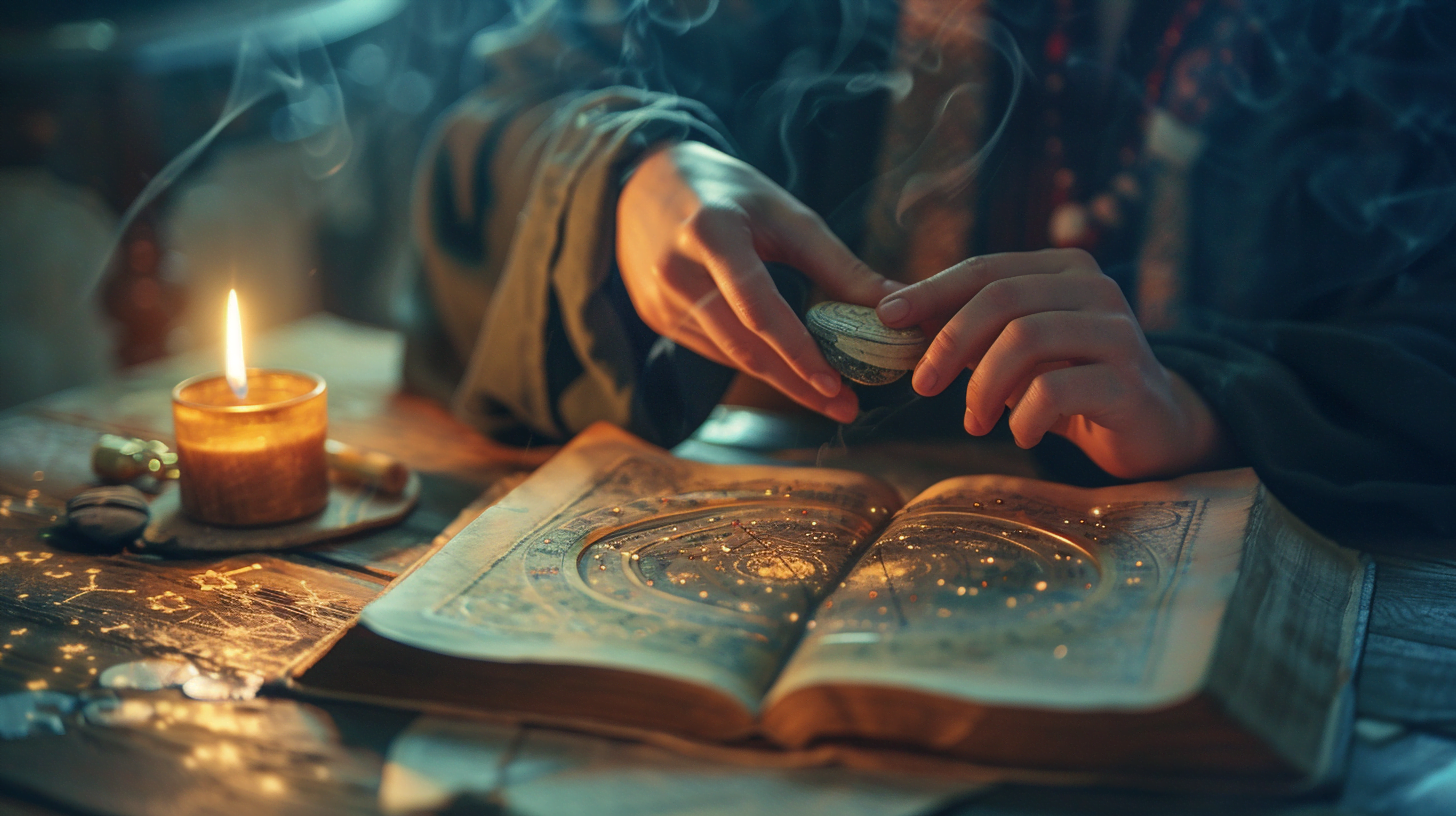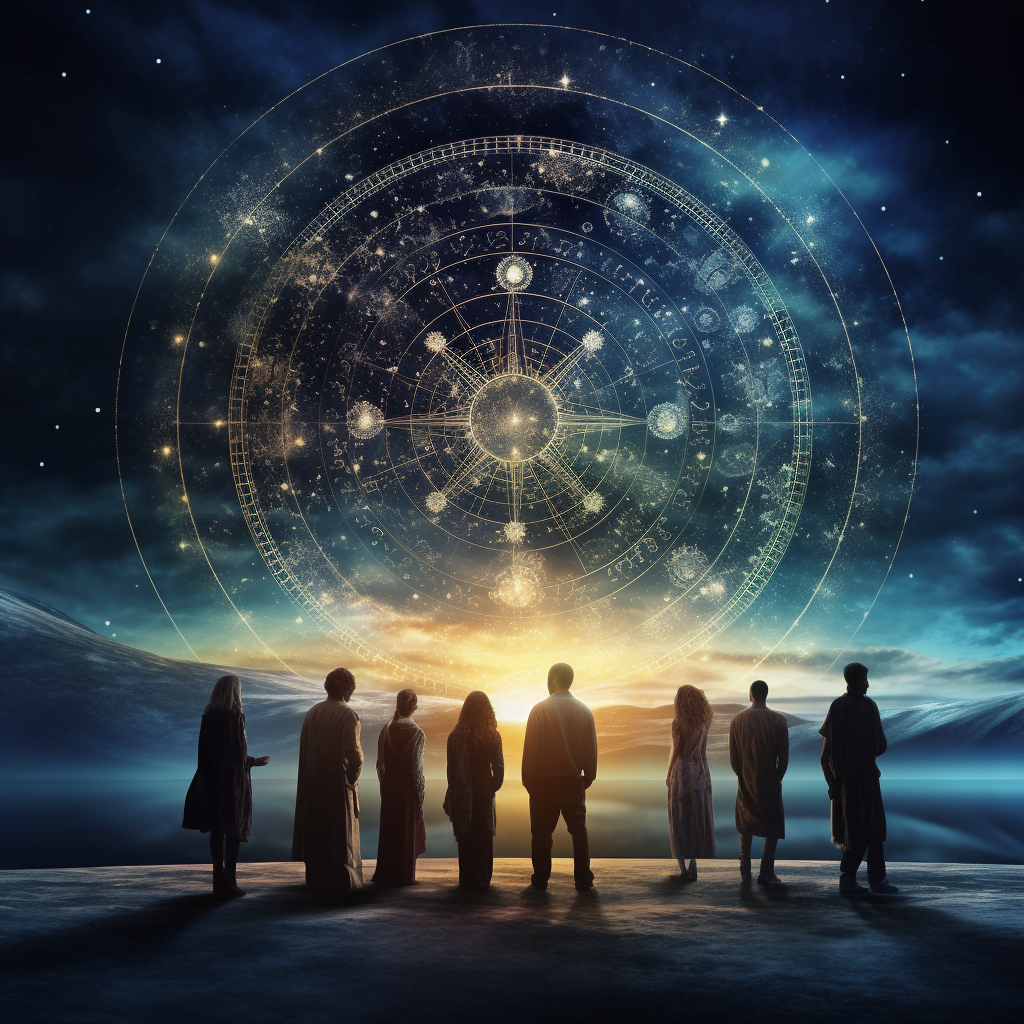Throughout history, the study of astrology has played a significant role in various cultures, providing a lens through which people better understand themselves and the world around them. From ancient civilizations to modern societies, astrology has emerged as a shared belief system, influencing individuals’ behaviors, relationships, and even decision-making processes. This article explores the intriguing connection between astrology and different cultures, delving into the significance of zodiac signs, planetary alignments, and celestial events in shaping cultural beliefs and practices. By examining the profound impact of astrology across a range of societies, we gain valuable insights into how diverse cultures perceive and interpret the cosmos, providing us with a richer understanding of the human experience.
Astrology and Its Cultural Significance
Astrology is an ancient practice that has played a significant role in cultures around the world. It is based on the belief that celestial bodies, such as the planets and stars, can provide insight into human behavior and predict future events. This article aims to explore the cultural significance of astrology by examining its presence in various societies across the globe. By delving into the origins, development, and cultural variances of astrology, we can gain a deeper understanding of how this universal phenomenon has shaped different cultures and their beliefs.
Astrology as a Universal Phenomenon
Astrology is a fascinating subject that transcends geographical boundaries, making it a universal phenomenon. Throughout history, civilizations from all corners of the world have looked to the heavens for guidance and spiritual connection. Whether it is the Chinese zodiac, the Mayan calendar, or Native American astrology, these diverse systems share common roots in humanity’s innate desire to make sense of the cosmos and understand their place within it.
Cultural Variances in Astrology
Although astrology is ubiquitous, it manifests differently across different cultures. Each culture has developed its own unique system of astrological beliefs, integrating their distinct values and cosmology. From the Western world to Eastern cultures, Native American tribes, African societies, Indigenous communities, Middle Eastern civilizations, South American peoples, and Southeast Asian nations, astrology takes on various forms and serves diverse purposes. To comprehend this vast tapestry of astrological practices, we shall examine each cultural group individually and explore the nuances that differentiate them.
Astrology in Western Cultures
Brief Overview of Western Astrology
Western astrology, also known as European astrology, has been widely practiced in Western cultures for centuries. It traces its roots back to the ancient Greeks and Romans, who developed astrological systems based on the positions of celestial bodies at the time of a person’s birth. These systems are composed of twelve zodiac signs, each associated with specific personality traits and characteristics.
Greek and Roman Astrology
Greek and Roman astrology were deeply intertwined, as the Romans adopted many Greek beliefs and practices. The Greeks believed that celestial bodies possessed divine qualities and could influence human fate. Influential Greek philosophers, such as Plato and Aristotle, explored the connections between the celestial and terrestrial realms, lending philosophical weight to the practice of astrology.
Astrology in Traditional European Cultures
Throughout Europe, various cultural groups developed their distinctive astrological traditions. In medieval Europe, astrology played a vital role in both religious and secular contexts. It influenced everything from medical treatments to the timing of important events. In Renaissance Europe, astrology experienced a resurgence as thinkers like Johannes Kepler and Galileo Galilei sought to merge astronomical observations with astrological principles.
Modern Western Astrology
Today, Western astrology continues to thrive and adapt to the changing cultural landscape. It has become popularized in horoscope columns, online forums, and even social media platforms. Although some may view it as mere entertainment, Western astrology remains significant to many individuals who seek personal guidance, self-reflection, and a better understanding of their relationships with others.
Astrology in Eastern Cultures
Origins of Eastern Astrology
Eastern astrology predates Western astrology by thousands of years. It emerged independently in different regions of Asia, where civilizations observed the night sky and made profound connections between celestial patterns and human existence. Eastern astrology draws heavily on religious and philosophical traditions, with profound influences from Buddhism, Confucianism, Hinduism, and Taoism.
Chinese Astrology
Chinese astrology is perhaps the most well-known form of Eastern astrology. It is based on a twelve-year cycle, each year associated with an animal symbol from the Chinese zodiac. The Chinese believe that the animal sign assigned to a person at birth influences their personality traits and fortune throughout life. Chinese astrology also incorporates the elements of earth, fire, water, metal, and wood, providing further insights into an individual’s character and destiny.
Indian Astrology
India, known for its rich spiritual heritage, has a diverse range of astrological practices. Indian astrology, commonly referred to as Vedic astrology or “Jyotisha,” is deeply rooted in Hindu religious and philosophical teachings. It uses a complex system of planetary alignments, houses, and birth charts to predict and analyze various aspects of an individual’s life, including marriage, career, and health.
Japanese Astrology
In Japan, astrology has deep roots in Shintoism, Buddhism, and ancient Chinese astrological systems. Japanese astrology, known as “Tenmon,” places great importance on the lunar calendar and astrological divisions called “ekisai.” These divisions analyze an individual’s birth year, month, day, and even the exact hour to determine their temperament, fortune, and luck throughout life.
Astrology in Other Eastern Cultures
Other Eastern cultures, such as those in Korea, Vietnam, and Thailand, have also developed their unique astrological traditions. These practices share commonalities with Chinese and Indian astrology but have distinctive characteristics that reflect their cultural values and history. Astrology in these societies continues to shape daily life, influence decision-making, and provide insights into individual and collective destiny.
Astrology in Native American Cultures
Native American Astrology: An Overview
Native American astrology is deeply rooted in the spirituality and connection to nature that is integral to indigenous cultures. The diverse Native American tribes across North America developed their distinct astrological beliefs and practices. These systems incorporate elements of animal symbolism, natural cycles, and celestial events to gain insight and guidance.
Astrology in Different Native American Tribes
Each Native American tribe has its own astrology, which reflects their unique histories, geographical location, and cultural perspectives. For example, the Lakota Sioux tribe regards the sun and the moon as significant celestial bodies, with each individual having both a day sign and a night sign. On the other hand, the Navajo tribe focuses on the traditional Navajo calendar and the correlation between celestial movements and agricultural cycles.
Astrology in African Cultures
African Astrology: An Overview
African astrology, like other cultural practices on the continent, is diverse and deeply intertwined with various African tribal cultures. It encompasses a multitude of beliefs and practices that draw from the rich mythologies, oral traditions, and ancestral wisdom of the region. African astrology centers on the connection between individuals, their destinies, and the cosmos.
Astrology in Different African Tribal Cultures
African tribal cultures exhibit a wide range of astrological practices, each with its unique symbols, traditions, and interpretations. For instance, the Yoruba tribe in Nigeria employs the “Ifa” divination system, which uses cowrie shells to communicate with the deities and foretell an individual’s fate. Similarly, in the Zulu culture of South Africa, astrology plays a vital role in selecting appropriate names for newborns, ensuring a harmonious alignment between the cosmic forces and the individual’s life path.
Astrology in Indigenous Cultures
Astrology in Australian Aboriginal Culture
The astrology of Australian Aboriginal culture is deeply interwoven with the Dreamtime, the mythical period when the ancestral beings shaped the land and its inhabitants. The Indigenous Australian people, often referred to as the First Australians, have a profound understanding of the celestial bodies and their significance in their spiritual and cultural traditions.
Astrology in Native Hawaiian Culture
In Hawaiian culture, astrology, known as “Hānau Ka Ua,” holds great importance. It connects the Hawaiian people with the natural environment, celestial bodies, and the cycles of nature. Hawaiian astrology incorporates lunar phases, specific days, and birth order to determine an individual’s personality traits, strengths, and weaknesses.
Astrology in Middle Eastern Cultures
Astrology in Ancient Mesopotamia
Ancient Mesopotamia, known as the “Cradle of Civilization,” was an influential hub of astrological and astronomical knowledge. The Babylonians, in particular, were known for their advanced understanding of celestial movements and their impact on human lives. They developed sophisticated astrological systems, such as horoscopes, that influenced later astrological practices in the Middle East and beyond.
Arabic and Persian Astrology
Arabic and Persian astrology, often referred to as “Ilm al-Nujum” and “Astrologia Authentica,” respectively, continued to build upon the foundations laid in ancient Mesopotamia. These traditions merged with Islamic teachings, resulting in a unique blend of astrology and mysticism. An important figure in Arabic astrology is Abu Ma’shar al-Balkhi, whose works greatly influenced the development of European astrology during the medieval period.
Astrology in Islamic Cultures
Astrology has a complex relationship with Islamic cultures, as interpretations of its practice vary across different schools of thought. While some Islamic scholars view astrology as divination and therefore forbidden, others acknowledge its historical significance and permit its limited use for personal guidance. Astrology’s influence remains present in Islamic culture, particularly in art, literature, and architecture.
Astrology in South American Cultures
Mayan Astrology
Mayan astrology, originating from the ancient civilization of the Maya in Mesoamerica, holds great cultural significance. This astrological system is known for its complex calendar, calendrical cycles, and the sacred Tzolk’in, which is made up of 260 days. Mayan astrology connects individuals with the divine, their ancestors, and the natural world, providing guidance on important life events, such as birth, marriage, and death.
Astrology in Andean Cultures
In the Andean region of South America, astrology played a vital role in the lives of ancient civilizations such as the Inca, Moche, and Tiwanaku. These cultures recognized the interconnectedness of the cosmos and the earthly realm. Andean astrology, commonly referred to as “Kusi Runa,” incorporates celestial events, especially the movement of the sun, moon, and stars, into agricultural, spiritual, and ritual practices.
Astrology in Southeast Asian Cultures
Astrology in Thai Culture
Thai astrology, deeply rooted in Buddhist and Hindu beliefs, is a fundamental aspect of Thai culture. It is interwoven into everyday life, shaping Thai customs, traditions, and ceremonies. Thai astrology revolves around the lunar cycle, birth charts, and horoscopes, providing individuals with insights into their character, compatibility, and life purpose.
Astrology in Philippine Culture
In the Philippines, astrology is deeply ingrained in the cultural fabric, encompassing indigenous beliefs, Chinese influences, and religious practices. Filipinos embrace astrological concepts such as birth charts, zodiac signs, and horoscopes in various aspects of life, including love, career, and decision-making. Astrology remains highly regarded, particularly during significant life events, such as childbirth and marriage.
Astrology’s Role in Modern Day Cultures
Astrology in Popular Culture
In modern-day cultures, astrology holds a prominent place in popular culture. It has become a source of entertainment, particularly through horoscope readings, astrology blogs, and social media platforms. Many individuals enjoy exploring their zodiac sign, reading compatibility reports, and engaging with astrological memes and discussions online. Astrology’s influence is evident in the media, with countless movies, television shows, and books incorporating astrological themes.
Astrology’s Impact on Society
Astrology’s impact extends beyond individual fascination and entertainment. It shapes societal trends, influences decision-making in various sectors, and provides a sense of personal identity and belonging for many individuals. Astrological beliefs can impact relationships, career choices, and even governmental decisions. By examining astrology’s role in society, we gain insight into how it shapes our collective values, aspirations, and worldview.
In conclusion, astrology’s universal yet culturally diverse presence demonstrates its profound significance in cultures across the globe. Whether in Western, Eastern, Native American, African, Indigenous, Middle Eastern, South American, or Southeast Asian cultures, astrology holds a place of importance, offering guidance, insight, and spiritual connection. Understanding the unique variances and deep roots of astrological practices in different cultures enriches our knowledge of humanity’s age-old fascination with the cosmos and our never-ending quest to comprehend our place in the universe.


